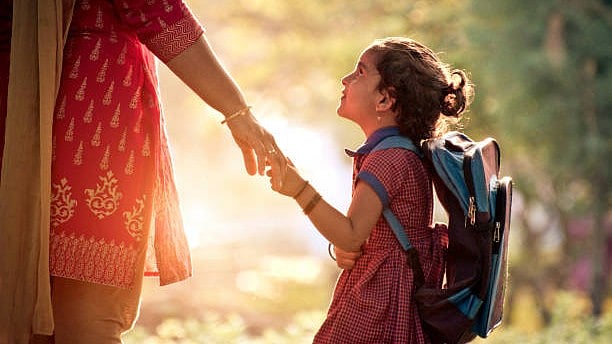
Image for representational purposes.
Credit: iStock Photo
Children possess an incredible ability to absorb, retain and innovate in ways that can astonish adults. Their memories are like sponges, holding onto details we might overlook, and their sharpness enables them to grasp new concepts quickly. Driven by curiosity, they eagerly search for knowledge, building an impressive vocabulary that helps them express unique perspectives. This fresh way of seeing the world allows them to come up with new ideas that push boundaries and challenge norms.
Every day, my six-year-old grandson, Mohammad Ibrahim, a Class 1 student, bounces into the house after school. My daughter reminds him to freshen up, and while he does, she checks his tiffin box and reviews his notebooks, ensuring no remarks or homework tasks are missed. After a short break, she sits down with him, guiding him through his classwork with patience, creating a warm, nurturing atmosphere where learning becomes a joy.
I was sitting in the corner, watching my grandson doing his homework with his mother, my daughter. I couldn’t help but notice the weight of my grandson’s school bag – a staggering 10kg. My daughter guided him through each subject, from English to Kannada to Hindi. His little face twisted into various expressions as he tried to focus on each new task. It brought back memories of my own childhood, when we studied in a far more relaxed manner.
Up to the third grade, we were taught a single language. Additional languages were introduced gradually, in a phased manner, allowing us ample time to learn and appreciate each language with ease.
We didn’t know the concept of “tension” until college. But nowadays, children talk about the “tension” they feel from school work. Once my grandson finished his homework, my daughter declared, “In an hour, we’ll start your abacus tuition work.” He glanced at her, then came over to me and whispered, “Nanu, Mai insaan houn, robot nahi” (Grandpa, I am human, not a robot). His words went straight to my heart. I felt a rush of emotions—love, sympathy, and concern. I held him close, trying to shield him from the pressures he shouldn’t face yet. How could such wisdom come from someone so young? It dawned on me, painfully, that the relentless pace of our digital, structured world is leaving scars on even the youngest among us.
As I looked into his earnest eyes, I couldn’t shake the feeling that in today’s pursuit of academic excellence, we are quietly stealing the childhood of our children. Pressured by the demands of constant computation, exams, and the relentless chase for top marks, they miss out on the simple joys of play, wonder, and discovery that define youth.
Instead of exploring, creating, and learning at their own pace, they are burdened with schedules and expectations that weigh heavy on young shoulders.
We might be chipping away at the beautiful freedom and simplicity of childhood—the precious heart of what it means to be human.